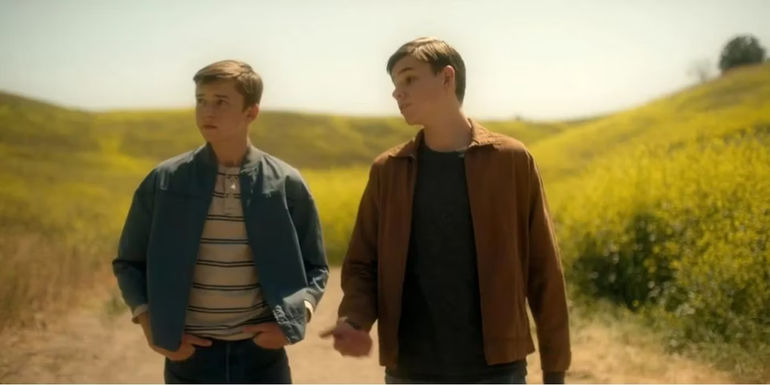
The Moral Code of Reacher: Exploring the Character's Drive to Help and Reluctance to Get Involved

A deep dive into the moral code of the titular character in Reacher, examining the reasons behind his drive to help people and his reluctance to get involved in situations that do not concern him.
Reacher's Moral Code and Its Origins
Reacher depicts its titular character as always doing the right thing despite not wanting to get involved in people's affairs, with season 1 providing the answer as to why. While Reacher season 2's episodes center on a story mostly unconnected to Jack's childhood, the first season featured strong connections to the titular character's younger life through the involvement of his brother, Joe. The first season of Reacher was based on The Killing Floor book from Lee Child's Jack Reacher series, which fleshed out the character via his past. By the time of Reacher season 1's ending, several aspects of Jack's life from when he was younger were established.
Young Jack and Joe Reacher in Reacher.
Through these insights, Reacher quickly establishes the moral code of Alan Ritchson's character which transfers into season 2's exploration of Reacher's special investigations unit. However, this moral code of always doing the right thing seemingly conflicts with his equal intent not to become involved in business that does not concern him. This conflict is present in Reacher seasons 1 and 2 and likely will be in Reacher season 3's story too, given that the reason why Jack always falls on the right side of the moral compass despite his wish not to get involved is grounded in such strong relationships.
Concerning Reacher's drive to help people, the reason stems from his childhood experiences with his mother, father, and brother. Throughout Reacher season 1, flashbacks are shown to Jack and Joe's lives growing up in Okinawa where their father was stationed. These flashbacks show them clashing with other kids in the neighborhood who continuously bully a child named Billy. Eventually, Jack and Joe's father has his career somewhat derailed by the father of the lead bully after the Reacher children stand up for Billy. This leads to Jack and Joe's mother insisting that the two did the right thing as it is so ingrained in them as people. After speaking to Joe, Jack's mother tells him that he will always use his strength to do what is right. This is where Reacher's tendency to help those in need comes from, with his reluctance to do so also coming from his childhood. It was explored in the flashback that the corrupt people of the world always seem to get away with things to the detriment of good people. As such, Reacher is always hesitant to help people, though his upbringing by his mother forces him to.
Exploring Reacher's Moral Code through Season Openings
In the opening scenes of both Reacher seasons 1 and 2, almost identical moments are used to explore this moral code. In Reacher season 1, Reacher is shown entering the town of Margrave before heading to a diner. Before entering, a couple leaves with the man physically and verbally abusing his partner. Reacher simply stands and stares at the couple, using his domineering presence to intimidate the man into backing down. This proves how Reacher is using his strength to do what is right, all while not getting directly involved as he does not speak a word nor make a physical advance on the man.
Jack Reacher (Alan Ritchson) striding away from an SUV in Reacher season 2.
Concerning Reacher season 2, Reacher is shown buying clothes from a thrift store before heading to an ATM. The woman in front of him at the ATM is withdrawing money to give to a carjacker, worried about her child who is still in the back seat. Reacher walks to the car, punches the window in, and beats up the carjacker, reuniting the mother with her son. Reacher then simply walks away, telling the woman he prefers not to get involved. These scenes perfectly sum up the moral code of Reacher, both the show and its titular character - a moral code that was ingrained in Reacher from an early age.















